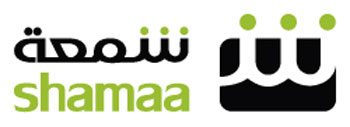التنافس الحزبي المعاصر وتحديات الوحدة الوطنية على الاستقرار السياسي في تشاد
معرّف الغرض الرقمي:
https://doi.org/10.56989/benkj.v4i7.1094الكلمات المفتاحية:
بناء الموافقات، الكفاح المسلح، دور الأحزاب السياسية، ضعف الأحزاب السياسية، التحديات السياسية، التأثير على الأمن والاستقرارالملخص
جاء البحث تحت عنوان (التنافس الحزبي المعاصر وتحديات الوحدة الوطنية على الاستقرار السياسي في تشاد)، تكونت الدراسة من أجل النضال الوطني والتنافس الحزبي والتحديات المعاصرة، لأن التاريخ السياسي التشادي حافل بعدد من التغييرات السياسية التي كانت ملطخة بالدماء، رغم ممارسة الديمقراطية فيها، وعند متابعة الخطوات السياسية منذ الاستقلال وضعت القوانين المتعددة لتسيير أمور البلاد، ومشاركة الأحزاب السياسية، فبعد الاستقلال شهدت جمهورية تشاد أول دستور عام 1960م واستمر العمل به حتى عام 1962م. فمنذ تلك الفترة شهدت تغيرات في نظام الحكم منها نظام حكم الحزب الواحد والحكم العسكري وبدأت مشاركة الجبهات السياسية المسلحة والفعاليات السياسية المدنية ووضع ميثاق وطني في البلاد، ليشمل مشاركة القوى السياسية كالأحزاب وجمعيات المجتمع المدني والإدارات الأهلية والشخصيات المرجعية وكوادر الدولة في بناء الوحدة الوطنية داخل وخارج تشاد لاستقرار البلاد، لأن الدولة تعيش في مرحلة عدم الاستقرار في عالم تسوده الكثير من المظاهر الإنسانية لأن نتائجها وخيمة في الزمن المعاصر، والوحدة والسلام والتضامن جميعها مرتبطة ببعضها البعض.
يهدف هذا البحث إلى التنافس بين الأحزاب السياسية المعاصرة على بناء الدولة وتكوين الوحدة الوطنية والاستقرار السياسي في دولة تشاد:
- التعرف على الأحزاب السياسية ومراحل تطورها.
- معرفة أوجه الاختلاف بين الأحزاب السياسية التي نشأت في تشاد واستخدام الباحث المنهج التاريخي الذي يسرد لنا الحقائق التاريخية والمنهج التحليلي الذي يساعدنا على فهم وتحليل واقع الأحزاب السياسية التشادية.
ونتيجة هذه الدراسة ما يلي:
- التحالفات والتكتلات الحزبية في عهد الاستعمار هي سمة بارزة في نشاط الأحزاب للوصول إلى السلطة لخدمة المستعمر الفرنسي رغم تظاهرها بروح التنافس السياسي، إلا أنها موجهة من قصر الإليزيه عبر عناصر غير تشادية حاملة للجنسيتين الفرنسية التشادية.
- إن غالبية الأحزاب السياسية التشادية نشاطها محدود إلا في فترة الانتخابات.
ويوصي الباحثون بما يلي:
- تشجيع الباحثين في مجال تاريخ تشاد الحديث والتوسع في البحوث العلمية حتى يتسنى لكل الباحثين الحصول على معلومات مهمة عن بلادهم.
- أغلب الأحزاب السياسية ضعيفة في فكرها وبرامجها وتوجهاتها السياسية وتحتاج إلى صياغة جديدة في مكوناتها كي تمثل أداة من أدوات التغيير في البلاد لمحاربة القبلية والإقليمية التي شملت الأحزاب السياسية المعاصرة.
The research came under the title (Contemporary Partisan Competition and the Challenges of National Unity on Political Stability in Chad), the study consisted of national struggle, partisan competition and contemporary challenges, because Chad's political history is full of a number of political changes that were stained with blood, despite the practice of democracy in it, and when following up the political steps since independence, multiple laws were developed to run the affairs of the country, and the participation of political parties, after independence, the Republic of Chad witnessed the first constitution in 1960 and continued to work until 1962. Since that period, it has witnessed changes in the system of government, including the one-party system of government and military rule, and the participation of armed political fronts and civil political actors began and the development of a national charter in the country to include the participation of political forces such as parties, civil society associations, civil administrations, reference figures and state cadres in building national unity inside and outside Chad for the stability of the country, because the state is living in a phase of instability in a world where many human manifestations prevail because its consequences are dire in contemporary times, because unity, peace and solidarity are all linked to each other.
This research aims at the competition between contemporary political parties to build the state and form national unity and political stability in the State of Chad:
- Identify political parties and their stages of development.
- Knowing the differences between the political parties that originated in Chad and using the historical method that lists us the historical facts, and the analytical method that helps us understand and analyze the reality of Chadian political parties.
The results of this study include:
- Party alliances and blocs in the colonial era are a prominent feature in the activity of parties to reach power to serve the French colonizer, although they pretend to be in the spirit of political competition, but they are directed from the Elysee Palace through non-Chadian elements with dual French-Chadian citizenship.
- The majority of Chadian political parties are limited except during the election period.
The researchers recommend:
- Encouraging researchers in the field of Chad's modern history and expanding scientific research, so that all researchers can obtain important information about their country.
- Most political parties are weak in their ideology, programs and political orientations, and they need a new formulation in their components to represent one of the tools of change in the country to fight tribalism and regionalism that included contemporary political parties.
المراجع
کردي شمس، آدم (1992): التضامن والديمقراطية ضرورة حتمية لبناء تشاد، بنغازي، مجلة يونس، منشورات جامعة قار.
سامورا، محمد (2000): مساهمة الحوار في دعم السلم، طرابلس: مجلة التواصل (قضايا ثقافية شاملة) - السنة الثالثة - العدد العاشر.
Rober Cornevin (1973): l'Afrique noire de 1919 à nos jour-passe, universitaires de France.
Tchad et culture: n° 150-35 Emme année, Mai 1996 imprimerie IDT - N'djamena Tchad.
Le Progrès (Quotidien): Numéro Spécial Du 1 décembre 2002, N'djamena-Tchad.
الترجمة من:
Nahassoum Goual 1995: 300 dates d’histoire au Tchad-collection l’histoire – pour tous éditions, CEFOD, Ndjamena.
الترجمة من:
DEBY ITNO, IDRISS 1993-2005: La Paix De La Paix Et De Développement Durable: Faits Et Chiffres-Ministère De La Communication Et de La culture, N’Djamena.
الترجمة من:
La Progrès (Quotidien): Numéro Spécial Bilan 2003, N’Djamena – Tchad.
التنزيلات
منشور
كيفية الاقتباس
إصدار
القسم
الرخصة
الحقوق الفكرية (c) 2024 مجلة ابن خلدون للدراسات والأبحاث

هذا العمل مرخص بموجب Creative Commons Attribution-NonCommercial 4.0 International License.




























